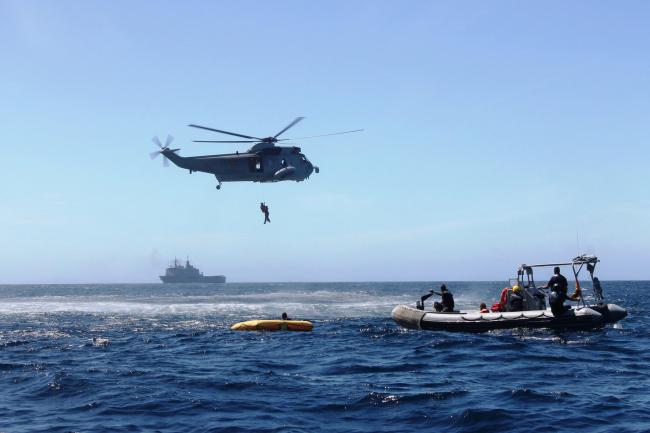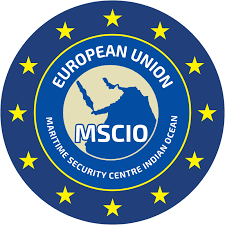The Maritime Security Centre Indian Ocean (MSCIO) is an initiative of the European Union Naval Force (EUNAVFOR) ATALANTA, established to enhance maritime security across the Red Sea, Gulf of Aden, Indian Ocean, and Persian Gulf. The MSCIO plays a crucial role in safeguarding global trade routes and ensuring freedom of navigation in one of the world's most strategically significant waterways. With up to 47% (EUROSTAT) of the European Union's trade by volume transported by sea and 10% (IMO) of global trade passing through the Gulf of Aden. The MSCIO's mission is essential to the welfare and prosperity of nations.
As an organic component of EUNAVFOR ATALANTA, the MSCIO also supports broader EU Common Security and Defence Policy (CSDP) operations, serving both EUNAVFOR ATALANTA and EUNAVFOR ASPIDES in their maritime security missions.
Operating from its headquarters in Brest, France, the MSCIO serves as an interface between the European Union Naval Forces in the area and the international shipping community. The center works diligently to support merchant vessels transiting the UKMTO Voluntary Reporting Area (UKHO Q6099) by collecting, analysing, and disseminating maritime security information.
Through the Voluntary Registration Scheme, the MSCIO provides 24/7 assistance to seafarers, issuing timely alerts, comprehensive threat assessments, and incident-specific bulletins.
MSCIO's robust daily risk assessment process identifies particularly vulnerable vessels and coordinates appropriate protective measures, leveraging its collaboration with international forces and stakeholders in the region.
The Maritime Security Centre Indian Ocean stands as a testament to the European Union's commitment to maritime security, industry cooperation, and the collective effort to uphold the freedom of navigation.

